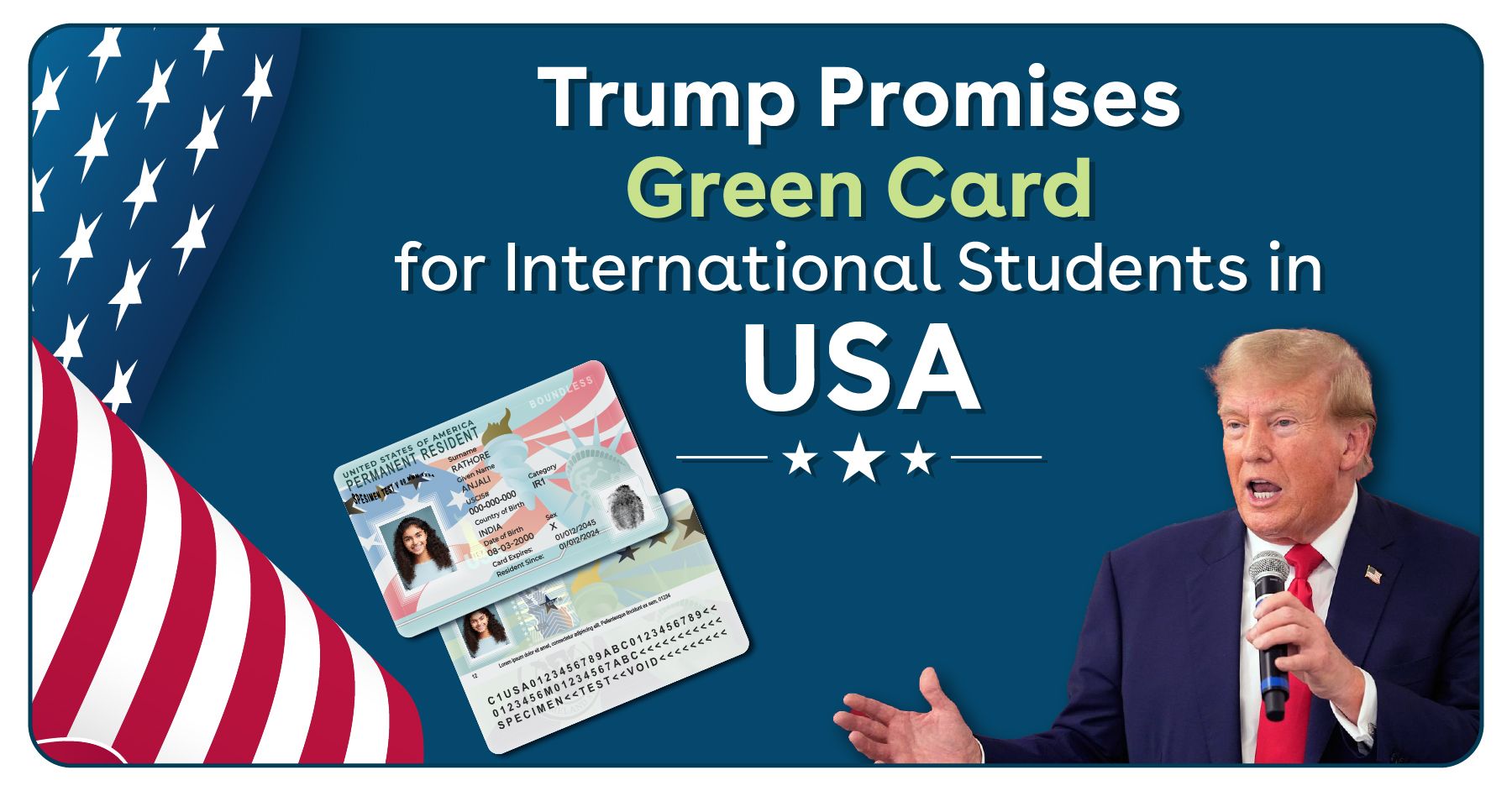Are you prepared to have your online life scrutinized as a condition for living in the United States? The Trump administration's proposed expansion of social media checks for green card applicants, as well as those seeking citizenship and asylum, signals a dramatic shift in the landscape of U.S. immigration, potentially impacting millions.
The core of the matter revolves around a directive issued by the former administration, specifically targeting the online behavior of immigrants and those aspiring to become citizens. This isn't a hypothetical scenario; it's a concrete proposal with significant implications for individuals and the broader principles of privacy and free expression. The Department of Homeland Security (DHS) and other agencies have been tasked with identifying all resources that can be used to vet all aliens seeking admission to the United States, or who are already residing within its borders. This includes a deep dive into their digital footprint, focusing on social media activity.
The United States Citizenship and Immigration Services (USCIS) has argued that these social media reviews are a necessary step to comply with an executive order on immigration, calling for enhanced vetting of immigration applicants. Executive Order 14161, signed by Donald Trump on January 20, 2025, forms the legal basis for this increased scrutiny. The government aims to identify potential threats to national security by examining the online activities of those seeking to live and become part of the United States.
- April Zodiac Sign Uncover The Secrets Of The Ram
- Cooking With Felice Bastianich Discover His Culinary Secrets And Recipes
For those seeking a green card, the situation is particularly noteworthy. Currently, visa applicants living abroad are already required to share their social media handles. But the new proposal aims to extend this requirement to those already legally residing within the United States, holding green cards, or seeking citizenship. This will involve the collection and analysis of their online posts, interactions, and overall digital presence, in an effort to assess their views and attitudes towards the United States.
This initiative has been met with considerable concern. Civil rights groups, privacy advocates, and the public at large have voiced strong opposition, citing concerns about the potential for the infringement of free speech and the chilling effect it could have on online expression. Many are also worried about how these evaluations will be conducted and whether algorithms or human reviewers will be making these sensitive assessments.
The potential for discriminatory practices is another key area of concern. Critics point out that the scrutiny of social media profiles could disproportionately affect certain groups or individuals, based on their ethnicity, religion, political views, or other protected characteristics. The application of these policies has far-reaching implications beyond those seeking to immigrate or become citizens. It touches on broader societal questions about the right to privacy, freedom of expression, and the balance between national security and individual liberties.
- Discover Alluring Images Of Clauddine Blanchard
- Kim Young Daes Love Life A Guide To His Relationships
The legal basis for this initiative rests on the idea that social media activity can provide insights into an individuals character and potential threat level. The USCIS has established a dedicated social media division within the Fraud Detection and National Security Directorate (FDNS) to formalize and streamline these vetting procedures. Under the former administration, the implementation of "extreme vetting" procedures was introduced, which significantly increased the scrutiny of visa applicants social media activity, and this policy is now being expanded and formalized. On March 5, 2025, The U.S. Department of Homeland Security (DHS) began to execute the executive order, marking a crucial stage in the implementation of the new policies.
The debate surrounding the vetting of social media profiles in the context of immigration is multifaceted. Proponents argue it is an essential tool to prevent terrorism and other security threats, while critics raise serious concerns about the potential for misuse, discrimination, and erosion of fundamental rights. The balance between these competing interests will ultimately shape the future of U.S. immigration policy and the way the government interacts with its citizens.
This policy shift has implications for the millions of green card holders currently residing in the United States. The prospect of having their social media accounts examined by the government has caused considerable anxiety. The previous administration's policies also resulted in increased scrutiny and enforcement, which highlighted that green card holders needed to remain vigilant and compliant with the law. The introduction of the new proposal is already being met with public condemnation and legal challenges, making it a focal point for those concerned about the rights of immigrants.
The administration's actions send a clear message to those seeking to live in the U.S. that they must be prepared to share not just their personal information but also the details of their online lives. This marks a significant change and raises important questions about how far the government should be able to go in monitoring the digital lives of those who wish to live within its borders.
The concept of "hostile attitudes" toward the U.S., as mentioned in the report, requires a clear definition and understanding of how it will be measured. This measurement, along with any legal challenges, will determine the scope and reach of these new regulations.
The Trump administration's proposal demands social media handles from citizenship, green card, and visa applicants, regardless of their current location. This includes those already in the U.S., further expanding the reach of these checks.
The implementation of these policies also brings forth practical challenges. Vetting social media profiles is a time-consuming process, and the government will need to develop efficient methods to manage the growing amount of data being collected. These methods must also be able to address the complexity of the digital world, where users can have multiple accounts, engage in private communications, and express themselves using various online platforms.
The impact of these measures on free speech and privacy are two key concerns. If applicants censor their online speech to avoid any negative review, this could lead to a "chilling effect," where people are hesitant to express their opinions, discuss certain topics, or engage in political activism. This can undermine the values of a free and open society.
| Aspect | Details |
|---|---|
| Policy | Proposal to vet social media profiles of green card, citizenship, and visa applicants. |
| Key Players | Donald Trump (former president), USCIS, DHS |
| Legal Basis | Executive Order 14161 (signed January 20, 2025) |
| Purpose | Enhanced vetting for national security, identifying "hostile attitudes". |
| Target | Green card holders, citizenship applicants, visa applicants (both in U.S. and abroad). |
| Concerns | Infringement on free speech, privacy violations, potential for discrimination. |
| Implementation | Social media division within USCIS (FDNS), "extreme vetting" procedures. |
| Timeline | March 5, 2025 (DHS begins execution), ongoing expansion. |
| Criticism | Condemnation from civil rights groups and the public, "chilling effect on free speech." |
| Practical Challenges | Efficient management of collected data, addressing digital world complexities. |
The recent proposal regarding social media vetting continues to be met with criticism, primarily focusing on its potential infringement on free speech and the erosion of personal privacy. Many express concerns about the potential for discriminatory practices and the subjective nature of interpreting "hostile attitudes" through online activity. The long-term effects of these policies are still unclear, but they are likely to have a significant impact on the immigration process and how people use their online presence. The debate will continue to shape U.S. immigration policy and the balance between national security and individual rights.
The implications of these changes go beyond immigration policy. They touch on the fundamental right to privacy, the freedom of expression, and how the government interacts with its citizens. These policies serve as a test of values, and the balance between security and freedom, which has a significant bearing on the very identity of the United States.
Further developments and legal actions will unfold as these policies are implemented and challenged. The way in which these regulations are applied and what impact they will have on the lives of immigrants, as well as citizens, will continue to shape the conversation for years to come.



Detail Author:
- Name : Nels Sipes
- Username : pkautzer
- Email : clinton07@hotmail.com
- Birthdate : 1986-06-17
- Address : 5204 Tate Forge Apt. 596 Baumbachbury, OK 50433-2342
- Phone : (717) 890-3475
- Company : Kuhic Ltd
- Job : Law Enforcement Teacher
- Bio : Iusto hic aperiam debitis aut laborum eos voluptas et. Commodi soluta architecto ipsam sed. Dolorum esse eaque et eos unde. Asperiores dolore illum sit velit atque et.
Socials
twitter:
- url : https://twitter.com/pourose
- username : pourose
- bio : Impedit qui dolorem et iusto nisi voluptate. Vitae in sunt optio odit quae quia quo dicta. Illo sed autem facere ipsa repellendus quia ut.
- followers : 1574
- following : 436
instagram:
- url : https://instagram.com/enrique_pouros
- username : enrique_pouros
- bio : Voluptate aut quidem impedit. Et molestiae possimus et et sunt dolores. Aut quos et accusantium.
- followers : 4437
- following : 1742
facebook:
- url : https://facebook.com/enrique7043
- username : enrique7043
- bio : Eaque consequuntur provident maxime odio sed architecto.
- followers : 4118
- following : 1654